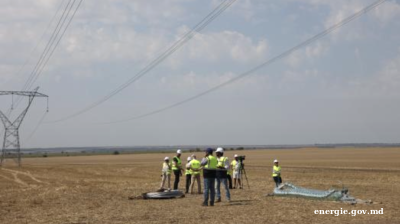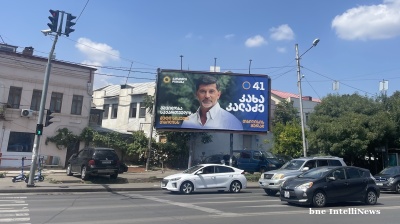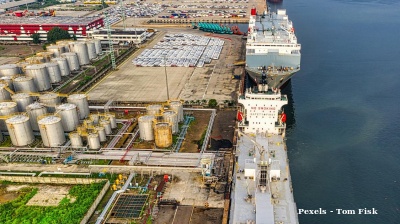Ukrainian former top general and current UK ambassador Valerii Zaluzhnyi has given another controversial interview and warned that the war against Russia could drag on for another decade unless Western allies fundamentally rethink their approach to military support and strategy.
Speaking to the editor-in-chief of LB.ua Sonya Koshkina, Zaluzhnyi said: “Western doctrine is stuck in Cold War thinking, building stockpiles, not agility. What’s needed is fast adaptation, algorithmic warfare, drone swarms, and real-time intelligence integration.”
Zaluzhnyi, Ukraine’s top military commander since July 2021 until he got fired, has repeatedly urged Nato members to move beyond military aid packages and toward closer operational coordination with Ukrainian forces.
“Ukraine is the only country actually fighting this type of modern war. And the West? Mostly watching,” Pinner wrote. “Zaluzhnyi says we don’t just need donations, we need joint development, joint production, and deep integration.”
“Without major changes, this war could last another decade.” He added, “That’s not pessimism. That’s what happens if Ukraine is left to bleed slowly without systemic change militarily, economically, and politically.”
The interview and its explicit criticism of the support given to Kyiv by its western allies is unlikely to go down well either at Nato’s HQ or with Bankova (Ukraine’s equivalent of the Kremlin). However, Zaluzhnyi is no stranger to controversy. While he was supreme head of Ukraine’s forces he stirred up a hornets nest in an interview in 2023 by saying the war with Russia had reached a stalemate, in widely quoted comments. Zelenskiy held a press conference to rebut the claim, however, Zaluzhnyi later validated after the Armed Forces of Ukraine (AFU) summer offensive failed to widespread disappointment.
Zelenskiy later fired the well-liked general when he overtook Zelenskiy in the opinion polls in what was widely seen as a politically motivated decision.
Much loved by Ukraine’s fighting men, Zaluzhnyi was an adroit commander and responsible for much of Ukraine’s successes in the first two years of the war. His opinion still carries great weight in Ukraine amongst voters and comes at a time when the fighting on the battlefield is not going Kyiv’s way. Zaluzhnyi argues that the war is now entering a fourth phase.
“In 2023, the traditional war ended. I'm absolutely sure that Russia now faces a choice: to gather “meat” again in 2026 but take it from Saint Petersburg, Moscow, and other “cool” cities, or think of something else. Most likely, this option won't work. Why? Because someone in Ukraine will make billions of drones that will cost $5 each and it will absolutely not matter how many people Putin will send.”
Zaluzhnyi’s comments reflect mounting frustration in Kyiv over what it sees as insufficient and outdated Western military doctrine. As bne IntelliNews opined in a recent opinion piece, the war is close to being lost after the Trump administration cut its support and the EU is struggling to fill Washington’s shoes. US President Donald Trump promised to aid Ukraine by sending new badly needed Patriot air defence missiles, but it later transpired that Berlin will supply two batteries and these won’t arrive until next spring.
“Nato isn’t ready,” Zaluzhnyi said, criticising what he called “strategic infantilism” in some Western capitals — the belief that the conflict can be managed or contained with incremental measures. “That delusion is costing lives and prolonging the war,” Zaluzhnyi said.
Zaluzhnyi’s demands focus on practical collaboration rather than symbolic gestures. Zaluzhnyi calls for help in building what works, share what matters, and rewrite the doctrines that no longer reflect today’s battlefield.
The war won’t end — it will evolve
The war will not end in the way many imagine. It will not conclude with a surrender or peace treaty, nor with tanks rolling through capitals. According to Zaluzhnyi the conflict with Russia — and modern warfare more broadly — is transitioning into something far more complex and enduring.
“This will end in three years. Maximum in five,” Zaluzhnyi said in a recent conversation. But he quickly clarified: “War? No, it’s not war. It will end with the phenomenon called parity finding.”
For Zaluzhnyi, parity is the point at which offensive and defensive technologies reach a temporary balance. “The styles of attack and defence forces are constantly competing,” he explained. “If you start to develop FPV [first-person view drones], you will find something that can beat them… This competition will end in five years. Let it be so. Although I think three.”
The current technological arms race in Ukraine — from drones to electronic warfare — will reach a critical juncture in a few short years.
But Zaluzhnyi warns that even then, the war itself will not disappear — it will simply transform. In his view, Ukraine is already in a phase of attrition, where the front line exists primarily “to be killed there. And the more, the better.” Ceasefires without long-term defence planning, he warns, will only accelerate the slide into prolonged instability.
A future shaped by demography and economics
Zaluzhnyi sees two major forces defining the wars of the future: demographics and economics.
“There are really no people. Not in Russia, not in Ukraine,” he said. The war has extracted a steep human cost, and both nations are facing shrinking populations. “Before the First World War, there were 10–15 children in families. Before the Second, 8–10. Now? We don’t have that.”
The second constraint is economic. “The British Army used a million shells in the First World War per month,” Zaluzhnyi noted. “Now the British Army does not know what a million shells look like.”
The current pace of conflict is financially unsustainable. “A drone costs around $50,000. A rocket for [a] Patriot system — around $800,000. Well, tell me, please, what country will fight like this?”
Ukraine, he argued, needs “brains and development strategies” more than bodies. The failure to rapidly integrate new weapons systems and adapt doctrine has left the country lagging. “Ukraine could not, due to objective reasons, quickly control all the new technologies.”
The end of mass armies
Zaluzhnyi firmly rejects the idea that future conflicts will be decided by conventional armies or mass mobilisation. “Who expects that a million soldiers will come? That is very wrong.”
Instead, he paints a picture of a high-tech battlefield governed by industrial capacity, algorithmic warfare, and economic thresholds — where survival depends on innovation, not manpower.
“The future war,” he concluded, “is a war with the most expensive equipment, with the highest efficiency. Don’t you think that’s what we see now?”
What comes next will be different: faster, costlier, and driven by two cold realities — the shrinking of populations and the limits of national treasuries.
Features

World GDP forecasts raised, but US slowdown anticipated - Fitch
Global growth is now forecast to be 2.4% in 2025, up 0.2pp since June but a sizeable slowdown from 2.9% last year and below trend.

Moldova’s dramatic energy sector transformation
Chisinau ended decades of dependence on Russia in just four years — but will the upcoming general election derail the remaining reforms?

Local elections loom in Georgia
Georgia’s October 4 municipal elections are already mired in controversy amid a partial opposition boycott and mounting state repression, as major international observers refuse to participate.

Iran's nuclear materials 'Under rubble of attacks', Foreign Minister claims
Iran's Araghchi says that the only nuclear site currently accessible is the Russian-controlled Bushehr nuclear power plant in his meeting with the IAEA.



